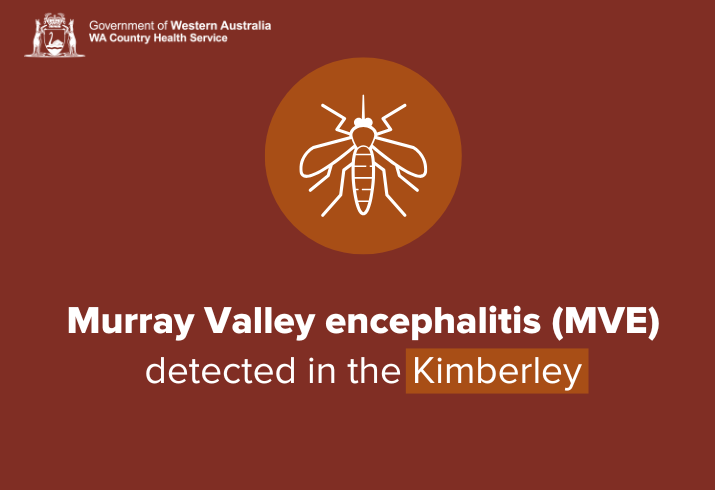WA Health confirms first Murray Valley encephalitis case for 2025

The following media release has been issued by the Department of Health.
WA Health is warning the community to protect themselves against mosquito bites as Western Australia has recorded its first confirmed case of Murray Valley encephalitis (MVE) for this wet season. Repel: Clean up: For more information on MVE, including prevention, visit: Murray Valley encephalitis and Kunjin viruses.
The case was identified in a child who acquired the infection in the east Kimberley region and is currently receiving medical care.
Managing Scientist Dr Andrew Jardine said that MVE was a rare but serious mosquito-borne disease.
In 2024, WA recorded four cases, with two resulting in death. Significant flavivirus activity, including MVE virus, continues to be detected in sentinel chicken flocks across the Kimberley and Pilbara regions, indicating ongoing risk in northern WA.
Dr Jardine said the northern wet season, and the period immediately following it, are the highest risk periods for mosquito-borne disease activity in northern WA and urged the public to take warnings seriously.
“MVE can cause severe illness, including brain inflammation, coma, permanent brain damage and, in some cases, death,” Dr Jardine said.
“Preventing mosquito bites is the best way to stay protected against potentially serious infections like MVE and other dangerous mosquito-borne viruses such as Japanese encephalitis virus and Kunjin virus.”
Early symptoms of MVE may include fever, drowsiness, headache, stiff neck, nausea, and dizziness, which may progress to confusion, weakness, vision or speech problems or seizures. Symptoms in young children may include drowsiness, floppiness or general distress. In infants, fever might be the only early sign of infection. Seek urgent medical attention if you or your child experience any of these symptoms.
Appropriate steps to protect against mosquitoes is available via HealthyWA, and includes:
Cover up:

